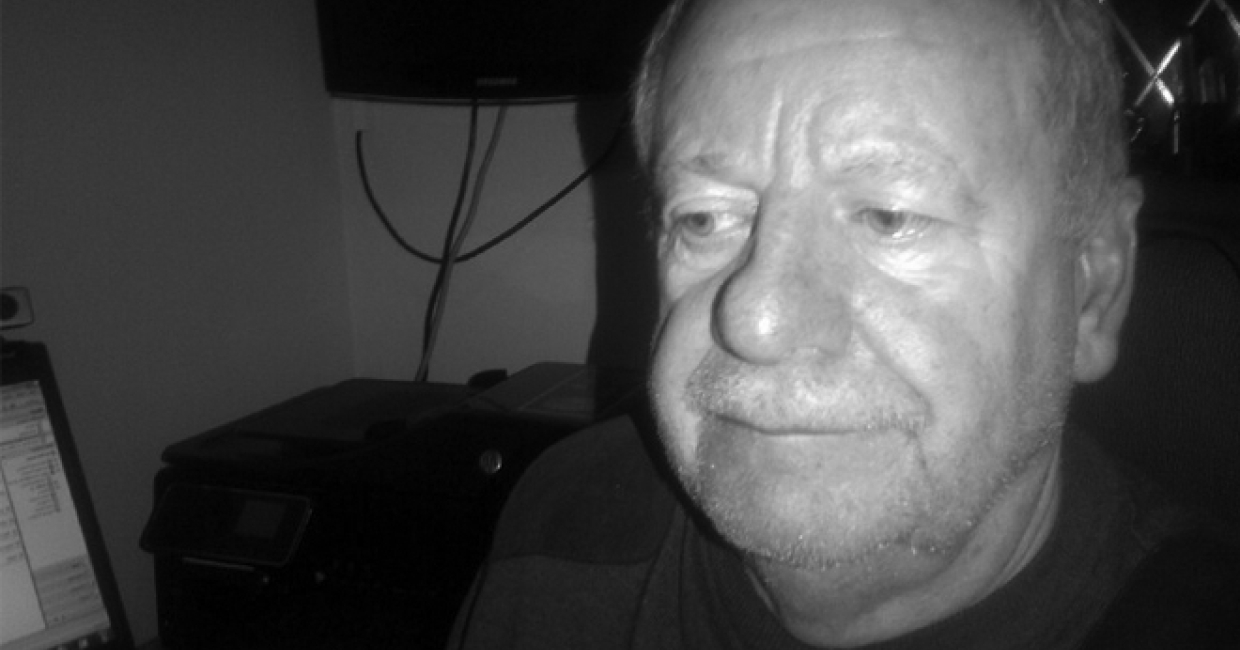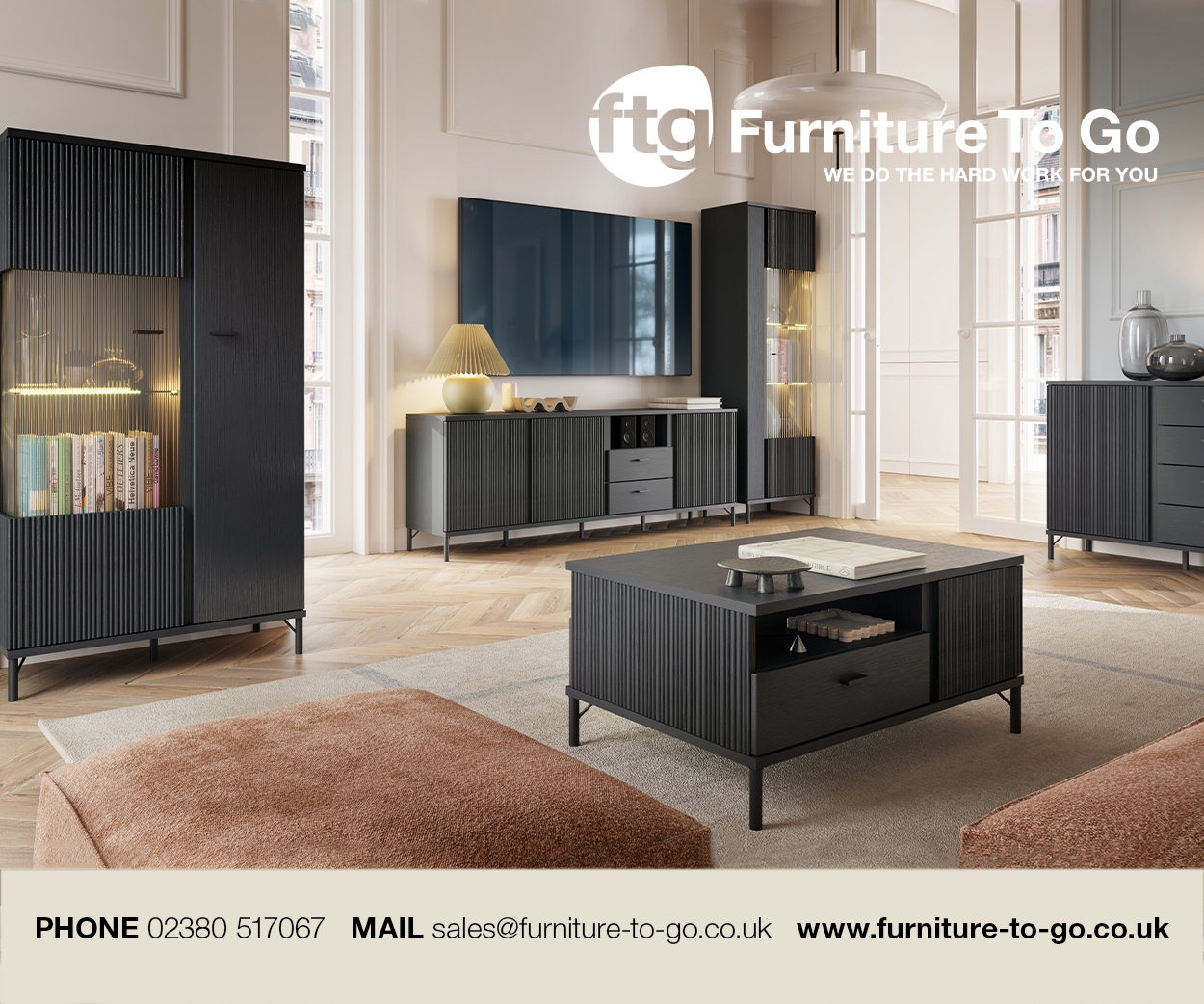Each Friday, Furniture News puts five questions to a selected industry professional to explore their background and approach to business. Today, it's the turn of Friday five – Dave Carney, accounts manager for Tatto Divani …
How did you get into the trade?
I remember my dad’s words when I left school: ”Get an apprenticeship son – you will be made for life.” So, in 1968 I left home and became an apprentice in an engineering firm in Gainsborough.
Having served for little financial reward for five years, I was finally indentured. Engineering was not the panacea that it was supposed to be, and after many redundancies, married with two sons, I decided to change career and applied for a Training Opportunity Scheme for work study.
I gained the qualifications, and after a short spell labouring at Drax power station I took up the role of work study engineer at Carlton Cycles, Worksop. The site eventually closed and was introduced into the Raleigh factory in Nottingham, which took me and my family to Calverton. I became manager of the Lightweight Cycle unit at Raleigh. Times were still uncertain, and my family had grown to three boys. I moved to Grantham, where I became factory manager for a family-owned engineering firm.
In Grantham, I was given the opportunity to enter the furniture industry. HLF, which was the brainchild of Sir Phil Harris – in partnership with Christie Tyler – secured a factory in Scunthorpe to produce furniture exclusively for the Queensway Group, and they advertised for an industrial engineer to head up their work study department. I got the job. They were exciting times, and my department was responsible for all projects and work measurement in this new factory.
What was the turning point in your career?
In 1990, the world seemed to collapse. Queensway went into receivership and HLF, who only supplied that group, was left without a paddle – but we scraped through. I was given the warehouse to look after. Our transport company had deserted us, and because we kept making furniture and the warehouse began filling, we had to sell and deliver. I knew very little about logistics, but became a quick learner. We went through some difficult times and changed our name to Lebus.
It was then that my friend joined the company as MD. Ron Davey gave me my chance in sales, and I wish I had not listened to my dad, and had instead gone into furniture sales 20 years earlier. Ron would say: “Most sales are secured and made in the bar after each show, etc.” He taught me how to drink a bottle of brandy into the early hours, and still look fresh and with-it the next morning before the customers arrived.
Looking back, they were the times I enjoyed the most – apart from the 1973 cup final! Ron made Lebus one of the premier manufacturers in the UK, and I gained tremendous knowledge from him. He left as Christie Tyler decided to downsize the business and put Lebus up for sale.
I carried on as sales director, but things were not the same without Ron, and after my wife Claire had a stroke in November 2008, life changed. I left Lebus – which I thought would never happen – in September 2011, and wondered if it was time to retire. I tried several things but to no avail.
It was then that I was approached by another old friend who asked me to go into partnership with him and introduce Tatto Divani back into the UK and ROI. It took me about 30 seconds to agree, because this is what I was missing. I felt I still had a lot to offer the furniture trade, and I love most of the people and the buzz.
How will the industry evolve?
In my many years in the industry I have seen the retailers go from a shop on every high street to large outlets out of town. The smaller retailer has had to diversify into multiple products, which is happening in the larger outlets. I think everyone is watching the internet with interest, and it can not be ignored.
Evolution changes with economic results. It changes quickly and returns slowly. There will be lots more casualties before the economic upturn, which may materialise just before election year – but for how long, I do not know.
How can retailers increase sales and profitability?
Having never retailed, this is a very difficult question, and I do not have the experience to advise retailers. As a selfish point of view – and what I see when I visit stores – is that floorspace is expensive. Do not hold on to ‘dogs’ for ever. As mentioned earlier, try to create footfall, and if there is a ‘dog’ on the floor, replace it. I also believe it is in the manufacturer’s interest to encourage retailers to replace models that are not selling and try alternatives.
What brings a smile to your face in this industry?
The love of this industry and most of the people who work in it has always brought a smile to my face. When Claire had her stroke in 2008, and I left Lebus, which I never thought would happen, it was life-changing. The furniture industry, even with its ups and downs, to date still encourages me to get out of bed in the morning. Such a difference – and a long way from engineering.
This is an extract from an article published previously in Furniture News magazine. For more stories like this, you can subscribe to receive a regular physical copy of the magazine, or sign up to have a free digital issue delivered to your inbox each month.







